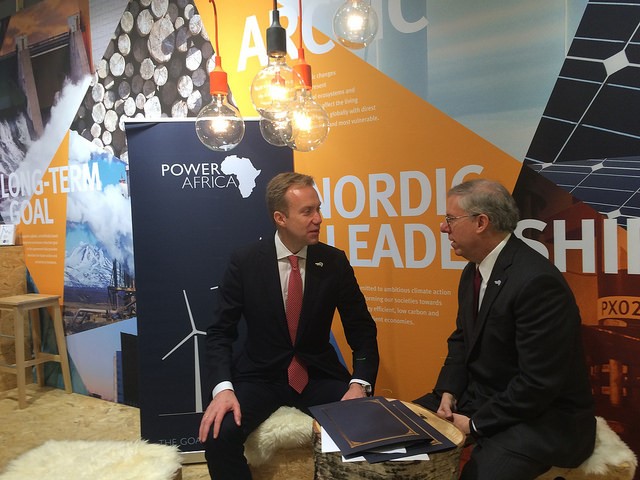Power Africa Initiative Has Potential to Generate More Progress

President Obama’s Power Africa Initiative is looking to solve a monster problem in sub-Saharan Africa, where two out of three people lack access to electricity. Power Africa suggests “ambitious but achievable” goals, including the creation of 60 million new electricity connections and 30,000 megawatts of new and cleaner power.
According to President Barack Obama, “Access to electricity is fundamental to opportunity.” With Power Africa, the U.S. is investing in Africa’s potential. Obama has brought together private and public organizations, political leaders and power generation experts with the goal of improving peoples’ quality of life and stimulating economic growth.
USAID’s goal with the Power Africa Initiative has been “to remove barriers that impede sustainable development.” A recent article in Bloomberg, however, claims that after three years, those barriers are still in place.
Writers Toluse Olorunnipa and Tope Alake cite evidence that Power Africa “has fallen well short of its goals, so far producing less than 5 percent of the new power generation it promised.” They highlight political dysfunction, policy bundling and economic hurdles as major obstacles to progress.
USAID, in collaboration with the U.S. Department of Energy, is aiming to implement policy and regulatory reforms, and the Department of Energy has partnered with the Clean Energy Solutions Center in the Power Africa Initiative to “help governments design and adopt policies and programs that support the deployment of clean energy technologies.”
With over 120 public and private partners, the Power Africa Initiative has the potential to make an enormous impact in the African continent, despite the bleak progress reported.
In September 2016, President Obama argued that progress is being made, citing successes involving “solar power and natural gas in Nigeria; off-grid energy in Tanzania; people in rural Rwanda gaining electricity.”
Obama went on to say that the global community must continue to invest in Africa’s youth in order to build upon the progress that has already been made. It may be that maximizing investment in Africa’s young people will “spur Africa’s energy revolution.”
As President-elect Donald Trump prepares to assume office, his choice of cabinet members is demonstrating a philosophical shift in foreign policy. It is uncertain at this point whether the incoming U.S. administration will continue to support international development projects such as Power Africa.
As long as funding continues, however, the initiative will continue to make an impact.
– Tim Devine
Photo: Flickr
